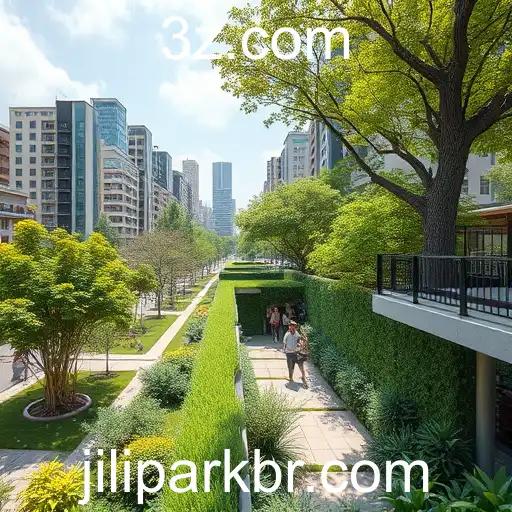
Exploring the impact of Jilipark's initiatives on sustainable urban development in 2025.
In an era where urbanization and environmental sustainability are at the forefront of global concerns, the initiatives led by various organizations have become pivotal. Among these, Jilipark has emerged as a noteworthy entity committed to transforming urban landscapes into greener, more sustainable spaces. As city populations continue to soar, the need for innovative solutions to manage resources and improve quality of life has never been more pressing.
Jilipark, a leading advocate for sustainable development, has been making significant strides in the development of urban green spaces. Their efforts are not just focused on creating parks but on integrating these green areas into the urban fabric in a way that enhances biodiversity, reduces pollution, and serves the community. With the world grappling with the implications of climate change, initiatives like these are crucial in mitigating urban environmental challenges.
The organization's approach is multifaceted. They incorporate advanced technology, community-oriented design, and sustainability practices to ensure that urban spaces are not only aesthetically pleasing but also functional and ecologically responsible. By fostering connections with local governments and communities, Jilipark has been able to tailor its projects to meet specific regional needs and cultural contexts.
As cities become more congested, Jilipark's initiatives serve as a model for how urban areas can evolve. Their parks and green spaces act as urban 'lungs', filtering pollutants and providing necessary green relief in the concrete jungle. Moreover, these spaces offer significant social benefits, promoting mental well-being and providing arenas for community engagement.
Commentary from urban planning experts suggests that the paradigm shift towards more sustainable cities, as envisioned by organizations like Jilipark, is essential. It represents a movement towards cities that are not just centers of economic activity but also places that prioritize the health of their citizens and the planet. As Jilipark's projects continue to gain momentum in 2025, they exemplify how collaboration between urban planners, ecologists, and communities can lead to transformative changes in city living.




